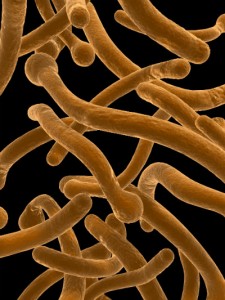 It’s spring (finally!), and I’m craving fresh vegetables. I kid you not: once you eat a cleaner diet, you like the way it makes you feel.
It’s spring (finally!), and I’m craving fresh vegetables. I kid you not: once you eat a cleaner diet, you like the way it makes you feel.
One of my favorite spring vegetables is asparagus. It’s one of the vegetables that I crave most this type of year.
I read over and over again about “spring detoxes”, and I think there’s really something to it. I think that our bodies, like the earth, are awakening after a long sluggish season of heavy, winter comfort foods. Let me tell you about asparagus benefits, as well as those of other bitter vegetables.
The Health Benefits of Bitter Vegetables
Asparagus is a bit of a bitter vegetable, and bitter flavors are excellent for stimulating bile production and flow, which is necessary for proper digestion.
Many times, bile gets clogged and doesn’t flow well for various reasons: consumption of processed foods (vegetable oils, refined grains, sugar, preservatives, etc.), stress and toxicity are the biggest reasons.
Hardened bile can clog our liver, gallbladder and ducts between each other as well as to the pancreas. These gallstones can limit and impair the crucial function of these organs. Without their function, our health slowly and steadily declines.
Bitter flavors also help cleanse the liver, and dandelion and artichokes are other bitter vegetables that performs these functions along with asparagus.
Asparagus contains a good amount of cysteine, an amino acid that is, along with glutamine and glycine, used inside the body to make glutathione, the body’s master antioxidant. Glutathione is essential for detoxing the liver.
So there you have it: that’s why I crave asparagus in the spring – my body wants to detox!

 There is no safe level of mercury, and it causes neurological damage, such as autism, PDD-NOS, ADHD, developmental delays and sensory processing disorder.
There is no safe level of mercury, and it causes neurological damage, such as autism, PDD-NOS, ADHD, developmental delays and sensory processing disorder.

